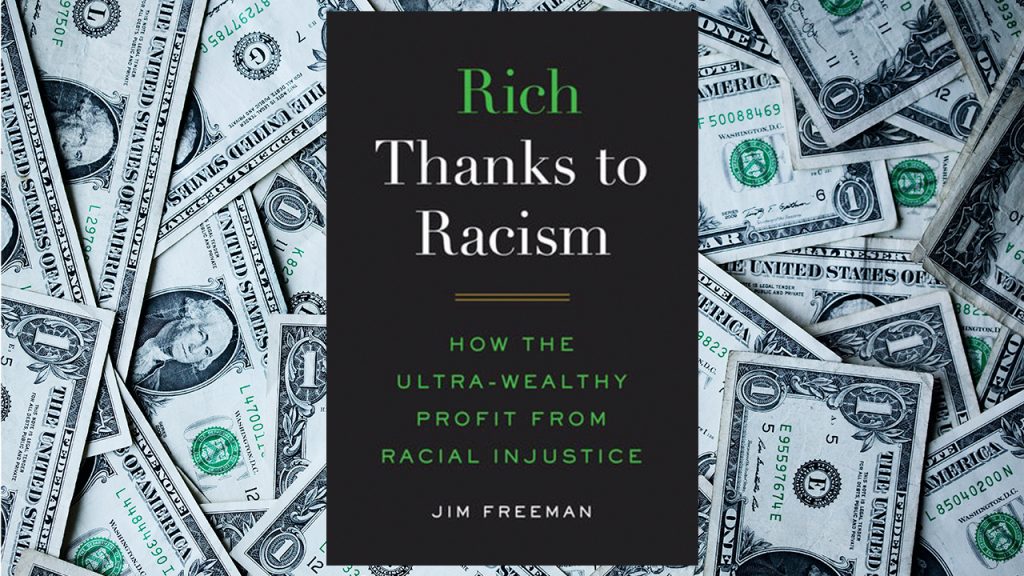Civil Rights Attorney Jim Freeman Explores How the Ultra-Rich Profit from Racial Injustice in New Book
The author of “Rich Thanks to Racism” says that while not all of the country’s ultra-wealthy are necessarily conscious of their complicity in upholding systems of inequity and oppression, it is happening nonetheless.

Over the last year, our nation’s issues regarding socioeconomic and racial inequity have been laid bare in all their stark dysfunction, and there’s been a lot of discussion around the role of the ultra-wealthy in the perpetuation of these systems.
“There may not be a more significant racial justice issue than the massive over-investment in the criminalization of people of color.” –Jim Freeman, Author of “Rich Thanks to Racism: How the Ultra-Wealthy Profit from Racial Injustice”
Jim Freeman, one of the country’s leading civil rights lawyers, says that while not all of the country’s ultra-rich are necessarily conscious of their complicity in upholding systems of inequity and oppression, it is happening nonetheless.
Listen: Jim Freeman discusses how racism is being used to support the flow of wealth to powerful and influential people.
Guest

Jim Freeman is one of the country’s leading civil rights lawyers, and the director of the Social Movement Support Lab at the University of Denver. He is also the author of the forthcoming book “Rich Thanks to Racism: How the Ultra-Wealthy Profit from Racial Injustice.”
In his book, Freeman says there are three systems that keep people of color from taking part in various opportunities or acquiring wealth. “I focus on criminal justice, education and immigration,” he explains, adding that “there may not be a more significant racial justice issue than the massive over-investment in the criminalization of people of color.”
Freeman delves further into the impact that the criminal justice system is having on Black and brown communities. “We know for a fact that entire communities of people are going to be harmed by our criminal justice system … that racially inequitable outcomes will occur because of how these systems are set up and yet we demonstrate no collective urgency to address these issues,” he says.
Freeman also discusses how he came to use the term “strategic racism” in his book and why he believes it more accurately depicts our reality than more general terminology. “The term systemic racism isn’t even descriptive enough and that’s why I use the term ‘strategic racism,'” Freeman says.
Web story written by Allise Hurd
Trusted, accurate, up-to-date
WDET is here to keep you informed on essential information, news and resources related to COVID-19.
This is a stressful, insecure time for many. So it’s more important than ever for you, our listeners and readers, who are able to donate to keep supporting WDET’s mission. Please make a gift today.
